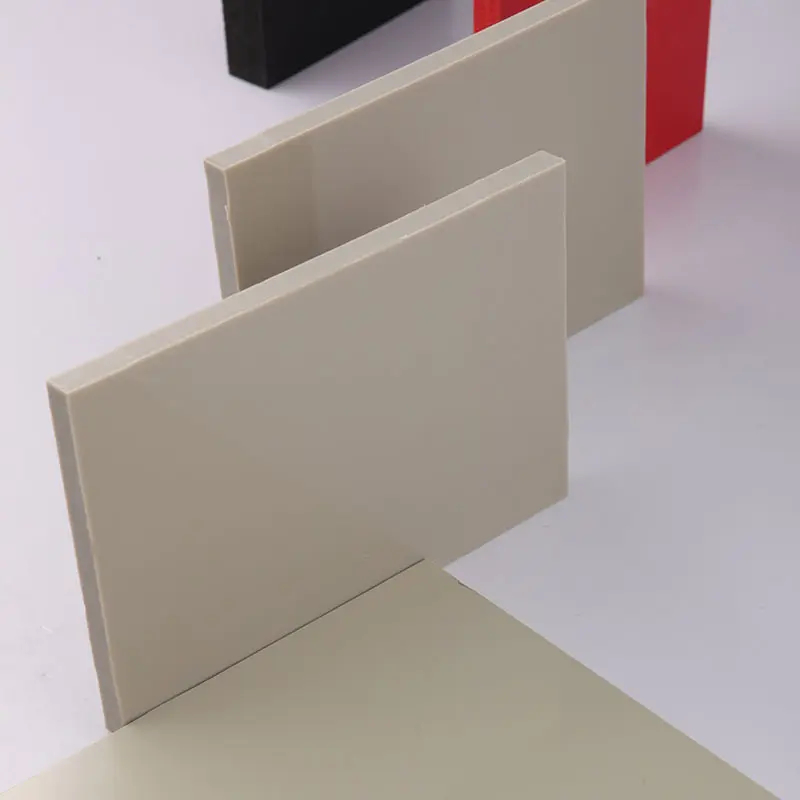Aug . 08, 2024 01:40 Back to list
Exploring the Versatility and Applications of 6-Inch PVC Pipes in Various Industries
The Versatility and Applications of 6-Inch PVC Pipes
PVC (Polyvinyl Chloride) pipes are an essential component in various industrial, commercial, and residential plumbing applications. Among the various sizes available, the 6-inch PVC pipe has gained significant popularity due to its versatility and efficiency in multiple uses. This article explores the characteristics, applications, and benefits of 6-inch PVC pipes.
Characteristics of 6-Inch PVC Pipes
PVC is known for its durability, lightweight nature, and resistance to corrosion and chemicals. A 6-inch PVC pipe typically features a smooth interior surface, which minimizes friction and allows for the efficient flow of liquids and gases. This pipe size is commonly available in various pressure ratings, making it suitable for different applications—from low-pressure drainage systems to high-pressure irrigation systems.
One of the standout characteristics of PVC is its ability to withstand extreme weather conditions. It does not rust or corrode, which extends its lifespan compared to metal alternatives. Furthermore, PVC pipes are relatively easy to install and can be joined using solvent cement, making them a convenient choice for many projects.
Applications of 6-Inch PVC Pipes
1. Drainage Systems
One of the primary uses of 6-inch PVC pipes is in drainage systems. Their capacity to handle significant water flow makes them ideal for stormwater and wastewater drainage. Municipalities often use them for main sewer lines, and they are highly effective in residential drainage scenarios as well. Properly installed, these pipes can prevent flooding and ensure that excess water is efficiently channeled away from properties.
In agricultural settings, 6-inch PVC pipes are frequently used in irrigation systems. They can transport large volumes of water from sources like rivers or reservoirs to fields, ensuring crops receive the necessary hydration. Their resistance to chemicals makes them suitable for both potable and non-potable water applications, which is crucial for sustainable farming practices.
6 inch pvc pipe

3. Electrical Conduits
In addition to plumbing, 6-inch PVC pipes serve as conduits for electrical wiring. Their non-conductive nature ensures safety in electrical installations, preventing short circuits and eliminating risks associated with metal conduits. These pipes protect electrical wires from the elements, making them suitable for outdoor applications or areas prone to moisture.
4. Ventilation Systems
The lightweight and moldable attributes of PVC allow for innovative designs in ventilation systems. 6-inch PVC pipes can be used in both residential and commercial ventilation applications, ensuring proper air circulation and temperature regulation. Their smooth interior surface also reduces the risk of clogs, enhancing airflow efficiency.
Benefits of Using 6-Inch PVC Pipes
Investing in 6-inch PVC pipes presents several benefits. First, their durability translates to lower maintenance costs over time. Unlike metal pipes, which can corrode and require frequent replacement, PVC pipes offer longevity and consistent performance.
Moreover, the lightweight nature of PVC allows for easier handling and installation, reducing labor costs and time spent on projects. The resistance to both chemicals and environmental elements means fewer concerns about pipe degradation, making them a reliable choice for various applications.
Finally, cost-effectiveness is a significant advantage of using PVC pipes. Their relatively low material costs, combined with the reduced need for maintenance, make them an economical solution for plumbing, irrigation, and electrical projects.
Conclusion
In summary, the 6-inch PVC pipe is a versatile and effective solution for a wide range of applications. Whether used in drainage systems, irrigation projects, electrical conduits, or ventilation, its numerous benefits make it a preferred choice among contractors and homeowners alike. The ongoing developments and innovations in PVC technology only promise to enhance its applications and effectiveness in the years to come.
-
Durable PP Rigid Sheet: Lightweight, Chemical Resistant Solutions
NewsAug.21,2025
-
PVC Grey Sheet for Extraction: Chemical Resistant & Durable
NewsAug.19,2025
-
Durable PVC Pipe Fittings for Plumbing & Irrigation Needs
NewsAug.18,2025
-
HDPE Steel Belt Reinforced Spiral Corrugated Pipe | High Strength
NewsAug.17,2025
-
HDPE Pipe Fittings: Durable, Leak-Proof Solutions
NewsAug.16,2025
-
Premium CPVC Sheet: High-Temp & Chemical Resistant Solutions
NewsAug.15,2025

